Ever wanted to take home memories from Japan—but not the price tags?
In Japan, there’s a saying: “Nothing is more expensive than free.” It warns that free things often come with hidden costs, like feeling obligated to return a favor.
But rest assured, the souvenirs on this list are worry-free. No strings attached, no thank-you gifts required. In fact, nothing is cheaper than free!
Fortunately, Japan offers plenty of souvenirs you can collect for free (or almost free) if you know where to look. From quirky train tickets and artsy pamphlets to clever DIY ideas, this list will help you collect stories—not just stuff. Let’s embark on a light-hearted hunt for unusual souvenirs!
- 1. Hotel & Ryokan Toothbrush Sets
- 2. Transportation Tickets
- 3. Free Bookmarks from Shrines
- 4. Department Store Food Wrapping Paper
- 5. Local Supermarket Shopping Bags
- 6. Pocket Tissues with Advertisements
- 7. Convenience Store Chopsticks
- 8. Free Shrine Stamps (Self-Service)
- 9. Free Maps and Brochures from Tourist Information Centers
- 10. Empty Capsules from Gashapon Machines
- 11. Manhole Cover Cards
- 12. Free Pamphlets from Roadside Stations (Michi-no-Eki)
- 13. Stamp Cards from Local Shops
- Conclusion
1. Hotel & Ryokan Toothbrush Sets
Many travelers love the simple, disposable toothbrush sets provided at Japanese hotels and ryokan. While meant for convenience, these often come with charming designs or logos unique to each place. As long as you don’t take excessive amounts, they make quirky and practical souvenirs.

And let’s be honest—how many of us have kept these little amenities for years, thinking they’re too cute to actually use? Perhaps this habit is universal!
Want to know more about this item?
2. Transportation Tickets
Used tickets from trains, subways, and buses can become unique souvenirs of your travels. Whether it’s a reserved seat card from the Shinkansen or a colorful day pass from a local bus, each ticket holds a small memory of where you’ve been. Many travelers enjoy keeping them as physical proof of their journeys through Japan’s efficient transit network.
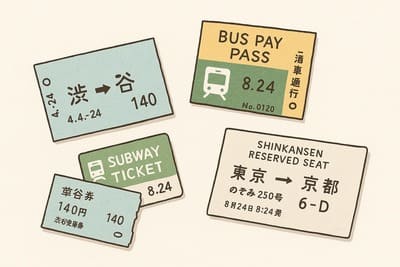
There’s something satisfying about giving new value to things that have already served their purpose.
Read the full story behind this souvenir:
3. Free Bookmarks from Shrines
Some Japanese shrines offer free bookmarks featuring their unique symbols or seasonal artwork. These small, thoughtful items are often placed near the donation boxes or at the reception desks.
Slip one quietly into your book, and every time you open it, you’ll feel a little spark of joy. (Though, to be honest, it won’t actually improve the book’s content.)
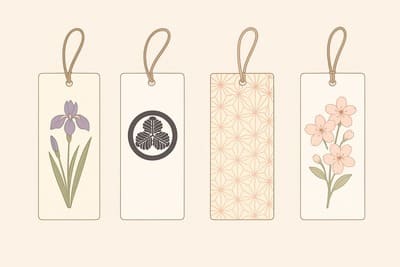
Learn what makes this a perfect take-home gift:
4. Department Store Food Wrapping Paper
Japanese department store food sections—known as “depachika”—are famous for their beautiful wrapping paper. From traditional patterns to modern designs, these wrappers are often too charming to throw away. Many travelers save them as unique keepsakes or even repurpose them for crafts or gift wrapping back home.
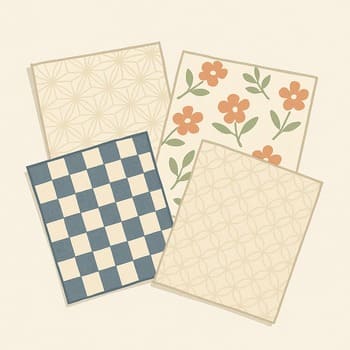
Of course, buying food just to get the wrapping would defeat the purpose—but if you happen to receive some, don’t toss it. Put it to good use!
Explore this souvenir in depth:
5. Local Supermarket Shopping Bags
Many local supermarkets in Japan use plastic shopping bags featuring unique regional designs or store logos. While these bags usually cost a few yen now, they often reflect local culture with charming artwork. Some travelers keep them as quirky, everyday souvenirs or reuse them at home for lunch bags or storage.
Or, when returning something you borrowed from a friend, you might use the bag and say:
“This is a souvenir from Japan.”
“But it’s just what I lent you!”
“No, the bag. Check out the design—it’s pretty cool, right?”
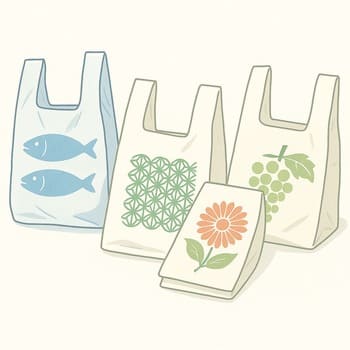
More details here:
6. Pocket Tissues with Advertisements
In Japan, it’s common to receive free pocket tissue packs on the street, often featuring local business ads or event promotions. This quirky form of advertising has become something of a cultural icon. Many travelers keep these as fun, lightweight souvenirs—or just appreciate having tissues on hand during their trip!

By the way, some packs might include ads for… let’s say, establishments featuring attractive women. So, gentlemen traveling with partners—consider yourselves warned.
Want to know more about this item?
7. Convenience Store Chopsticks
Many convenience stores in Japan provide disposable wooden chopsticks with meals. These chopsticks are simple yet well-made, often featuring smooth finishes and sturdy construction. Some creative travelers repurpose them for DIY projects or keep them as quirky souvenirs. Just remember not to take more than you actually receive with your purchases!
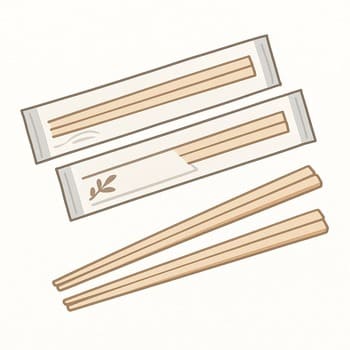
Here’s our full guide to this pick:
8. Free Shrine Stamps (Self-Service)
If you’re familiar with Japanese shrines, you might know about goshuin—special stamps offered for a fee. These days, collecting goshuin has become quite casual and popular, but traditionally, they’re considered a mark of religious faith. And let’s be honest—you probably didn’t plan on converting religions just because you visited Japan, right?
Fortunately, some shrines offer free self-service stamps featuring unique designs or symbols. Usually found near entrances or visitor centers, these allow travelers to mark their own notebooks or maps. No rituals, no fees—and certainly no conversions required! It’s a fun, interactive way to remember your visits.
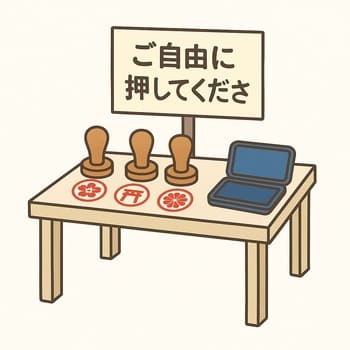
More details here:
9. Free Maps and Brochures from Tourist Information Centers
Tourist information centers across Japan often provide free maps and brochures featuring local attractions, events, and cultural highlights. These materials not only help you navigate unfamiliar areas but also make great keepsakes. Many travelers save them as colorful reminders of places they’ve explored—or use them later to plan their next trip!
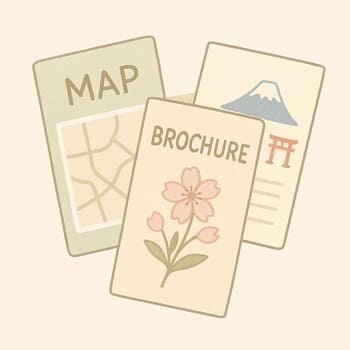
Want to know more about this item?
10. Empty Capsules from Gashapon Machines
Gashapon (capsule toy) machines are everywhere in Japan, offering quirky toys and collectibles. While the toys are the main attraction, the empty capsules themselves can be repurposed as storage for small items or as DIY craft materials. Some travelers even collect the capsules for their unique colors and shapes.
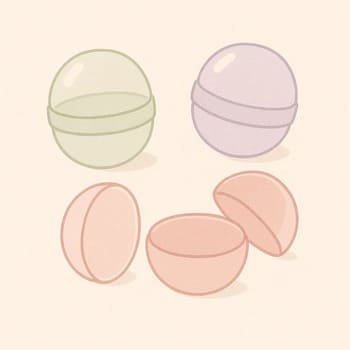
One clever reuse idea: turn them into tiny planters for small houseplants. Colored capsules can actually look quite charming!
Curious why this made the list?
11. Manhole Cover Cards
Many local governments in Japan issue free collectible cards featuring unique manhole cover designs from their cities or towns. These cards often include colorful illustrations and fun facts about the area. They’ve become popular among collectors and offer a quirky, regional keepsake that’s easy to carry home.
By the way, did you know that the trend of decorated manhole covers is said to have started in Okinawa? Normally, manhole covers should blend into the scenery—but someone decided to make them stand out. That kind of thinking is just one more reason why Japan is so fascinating.
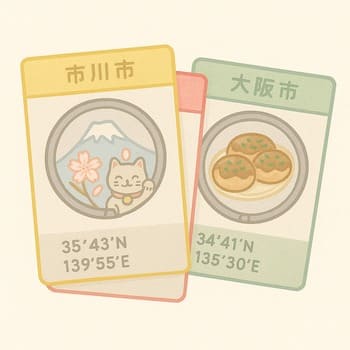
See how and where to get one:
12. Free Pamphlets from Roadside Stations (Michi-no-Eki)
Roadside stations, known as Michi-no-Eki, are found throughout Japan and often offer free pamphlets featuring local attractions, seasonal events, and regional products. These pamphlets not only serve as useful travel guides but also make colorful souvenirs that capture the character of the area. Many travelers enjoy collecting them from different regions.
If you like making travel scrapbooks, these pamphlets are a must-have!
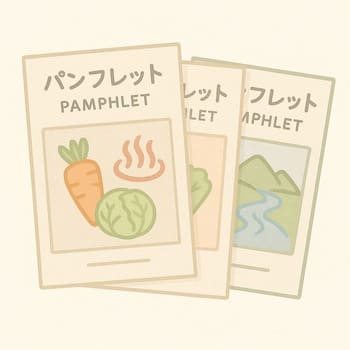
More details here:
13. Stamp Cards from Local Shops
Many small shops and cafes in Japan still offer traditional paper stamp cards. While meant to reward repeat customers, travelers often receive them even on a single visit. These cards often feature cute or quirky designs and can serve as charming reminders of the places you’ve discovered during your trip.
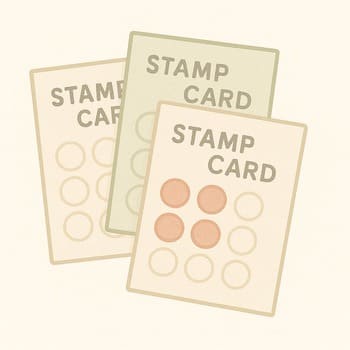
And just imagine the conversation you might have if you show a well-worn stamp card to the staff on your next visit to Japan. That thought alone is enough to make you smile.
Want to know more about this item?
Conclusion
Souvenirs don’t always have to be expensive or bulky. Even the simplest items—sometimes the ones you might overlook or even throw away—can become wonderful reminders of your journey. A colorful brochure, a quirky manhole card, or a used train ticket might hold more memories than you expect.
And wait… could it be that the saying “Nothing is more expensive than free” actually means just that?
You might also like:
🍔 Fast Food in Japan: 34 Must-Try Chains for Travelers
🚇 Train Etiquette in Japan: 10 Mistakes Foreign Travelers Often Make















